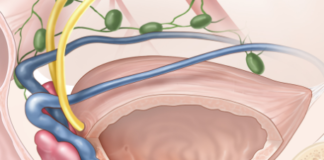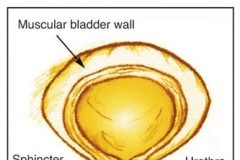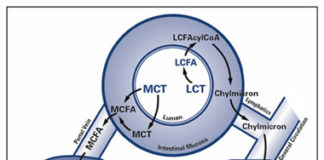Low-Grade Prostate Cancers May Not Become Aggressive With Time
Prostate cancer aggressiveness may be established when the tumor is formed and not alter with time, according to a study published in Cancer Research, a...
The Link Between Circadian Rhythms and Aging
Gene Associated With Longevity Also Regulates the Body's Circadian Clock
Human sleeping and waking patterns are largely governed by an internal circadian clock that corresponds...
Herbal Extract Boosts Fruit Fly Lifespan by Nearly 25 Percent
The herbal extract of a yellow-flowered mountain plant long used for stress relief was found to increase the lifespan of fruit fly populations by...
Estrogen Is a New Weapon Against Urinary Tract Infection in Postmenopausal...
Estrogen stimulates the production of the body's own antibiotic and strengthens the cells in the urinary tract, according to a new study from Karolinska...
Stress Hormone Could Trigger Mechanism for the Onset of Alzheimer’s
A chemical hormone released in the body as a reaction to stress could be a key trigger of the mechanism for the late onset...
Aspirin May Fight Cancer by Slowing DNA Damage
Aspirin is known to lower risk for some cancers, and a new study led by a UC San Francisco scientist points to a possible...
Medium Chain Triglycerides (MCTs)
Beneficial Effects on Energy, Atherosclerosis and Aging
By Ward Dean, MD and Jim English
Medium Chain Triglycerides (MCTs) are a unique form of dietary fat that...
Dementia Costs Top Those For Heart Disease Or Cancer, Study Finds
The monetary cost of dementia in the United States ranges from $157 billion to $215 billion annually, making the disease more costly to the nation than either heart disease or cancer, according to a new RAND Corporation study. The greatest economic cost of dementia is associated with providing institutional and home-based long-term care rather than medical services, according to the findings published in the April 4 edition of the New England Journal of Medicine.
Bladder Condition May Worsen Insomnia Symptoms In Older Adults
A new study suggests that the bladder condition nocturia (the need to wake up throughout the night to urinate ) may worsen the already poor sleep of older adults with insomnia. "The results raise the clinical question of treating nocturia to help individuals with insomnia," said Jamie Zeitzer, PhD, the study's lead author. "That is, could much of the insomnia or poor sleep that occurs in older individuals be alleviated by treatment of nocturia? Of course, the opposite is quite possible – that proper treatment of insomnia might reduce the occurrence of nocturia as well."
Weight Loss Improves Sexual Health Of Overweight Men With Diabetes, Study...
A new study published in The Journal of Sexual Medicine reveals that in obese men with type 2 diabetes, weight loss improves erectile function, sexual desire and lowers urinary tract symptoms.
Herbal Treatments for Postmenopausal Symptoms Recommended by Journal
Herbal Treatments for Postmenopausal Symptoms May Be Recommended as an Alternative to Hormone Replacement Therapy
Jan. 10, 2013 — Herbal and complementary medicines could be...
Common Medications Shown to Impair Memory, Cognitive Performance in Elderly
Are you elderly and having memory or concentration problems? They might be caused by common medications used to treat insomnia, anxiety, itching or allergies,...



















